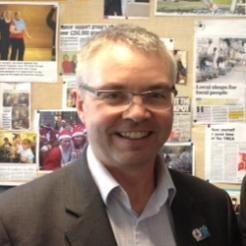The Big Lottery Fund is to spend £100m on projects involving charities, businesses and the public sector that aim to help young people that have been out of work for at least a year.
The Talent Match programme aims to tackle youth unemployment in areas of England that have high numbers of 18 to 24-year-olds not in employment, education or training. BIG has already identified 21 geographical areas that the programme will focus on, and is now inviting bids for up to £10,000 seed funding to assist charities and their partners to work up their ideas, with help from BIG. Each project will then be funded to the tune of £1m to £10m.
The funder envisages that charities will pull together partnerships of local authorities, employers, colleges and other training providers to devise how they can best rescue local unemployed young people from lives of disengagement and worklessness.
BIG chief executive Peter Wanless (pictured) said Talent Match was an early iteration of BIG’s new plan to be more proactive about involving the private sector in relevant funding activity, as outlined in its recent strategy refresh.
He told civilsociety.co.uk: “This has been an underdeveloped dimension of investments we have made in the past – we have rather left to chance the extent to which those relationships have been developed. Here we are clearly looking to connect up voluntary and community sector-led partnerships more systematically with the business opportunities in areas.”
Wanless went on to pre-empt any criticism that the Lottery could effectively be funding private companies: “The National Lottery is going to be helping young people who are furthest away from the jobs market build on the talents and aspirations they have in a really positive way. To do that without the direct involvement of the people who could potentially help them utilise those skills would be less effective.”
The programme’s success will not just be measured in numbers of young people who find jobs. “It’s absolutely not a dole-clearance programme,” said Wanless. “It’s about building on the talents and skills of these young people who are being left behind. I think we recognise that for many people the ultimate best thing that they can achieve to develop those talents in a strong and sustained fashion is a job, so that is a dimension, but it’s not the judge and jury of this programme.”
He said BIG would be commissioning a significant economic evaluation of the programme to determine what savings it achieves for society, and would determine what measures to use in the course of agreeing that contract.
“Jobs will be one,” he said, “but there are clearly some important proxies about developing talent and confidence, somewhere between where those young people are now and where they could be, that will be a really important feature of that work.”
Talent Match will focus on young people who have been unemployed for 12 months or longer. BIG will only accept one application from each area it is targeting.









